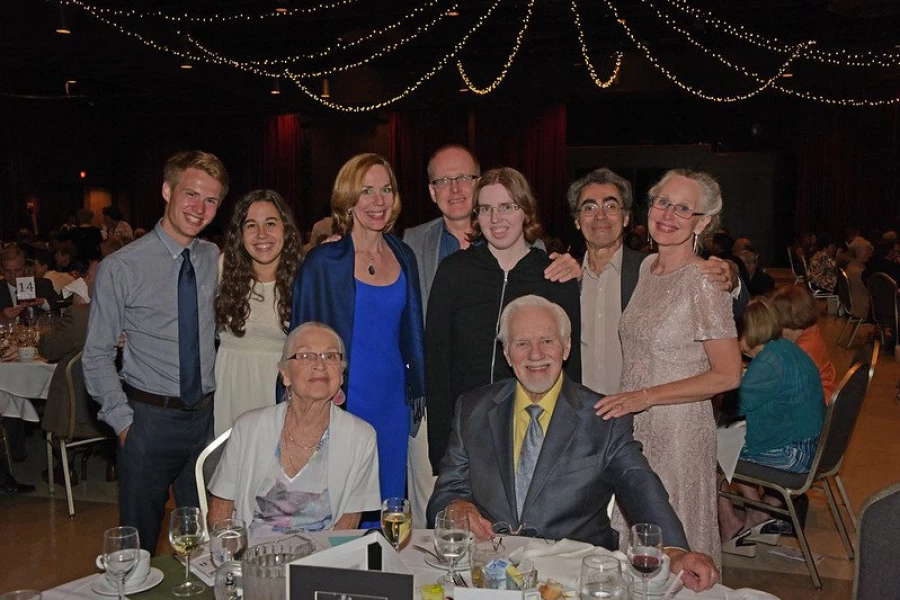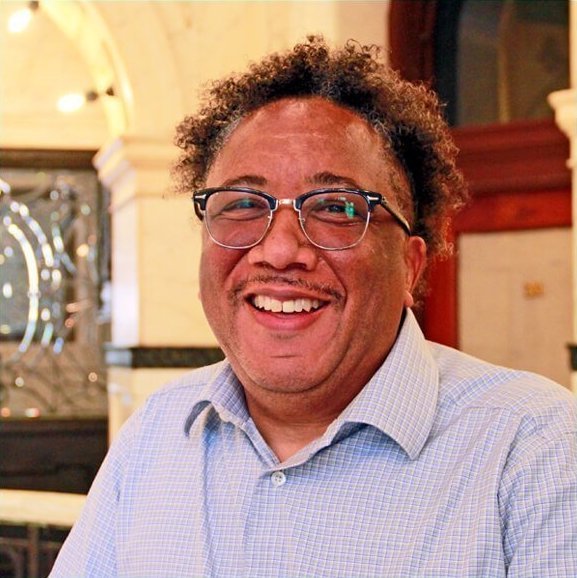John, Born: March 30, 1932 Sewickly, PA
Peg, Born: January 15, 1933 Akron, OH
The first scene of Peg and John Kirk's enduring love story would start in the fifth grade. John loved Peg. Peg was annoyed. “I was smitten with her, I had puppy love. It was horrible," John remembers. “It put me at a terrible disadvantage my whole life." Peg laughs and rolls her eyes. “I wasn't old enough to appreciate him," she reveals. It wasn't until their senior year that the couple started dating. John had “run away from home" to do summer theater with grownups and Peg says he returned a more sophisticated dating prospect.
They continued the relationship as they attended separate colleges. Peg attended Kent State University, working as a curb girl at a car hop to pay her bills and attending summer school in order to gradate with a degree in English in three years. John took an alternative route. He says his family life wasn't a happy one, but he was lucky to receive support from his assistant high school principal who extended a private tuition loan for John to attend the College of Wooster. In 1953 the couple married. Peg taught school that year in a small public school system in Wane County, Ohio as John finished college and worked part-time as a radio disc jockey.
John says he discovered a new appreciation of classical music by studying the album jackets for the records he played as host of the show “Concert Hall." John went on to get a master's degree in theater at Ohio State University but he couldn't find a job after graduation because he was eligible for the Draft. John decided he might as well volunteer to join the U.S. Army. During basic training, John attended the Army's radio code school, received top secret clearance and learned Morse code. He eventually got a chance to continue his love of theater when he joined the Special Services Division, the entertainment branch of the U.S. military. Stationed at Fort Sill, OK, Peg and John celebrated the birth of their first child, Kathleen.
During this time, John began a letter campaign targeting different college department chairs across the U.S. He eventually got an offer at the University of Florida where John would go on to earn his PhD. After the births of son, Jeff, and daughter, Christina, John accepted a job in 1963 as the Theater Department Director at Kearney State College and moved the family to Nebraska. John would face his first public spotlight there. When John joined war protests involving professors, students, and the American Civil Liberties Union, he upset campus leaders. At the climax of the unrest, then Nebraska Governor Frank Morrison called John at home to explain he was himself an anti-Vietnam War politician hoping to calm the protest. “I don't know why he called me," John says. “I wasn't anyone special."
Even as John felt the sting of being ostracized by his academic peers, Peg earned her master's degree in English at Kearney State College and prepared to begin a new teaching job. She never got a chance to start it because John was offered a job teaching at Illinois State University and the family moved to Normal in 1966. After a year, Peg landed a job at Normal Community High School and finally got a chance to establish a long-term teaching position. “I was always loved to interact with the kids and I had a variety of things I could teach," Peg says. “She's one hell of a good teacher, she taught me how to teach," John adds. She became the National Honor Society adviser and eventually took on the demanding position of speech coach. Her team won the state championship in 1980 and her newly polished public speaking skills would lead Peg to her own public spotlight.
In the late 1970s when the Unit 5 School Board announced budget plans to add additional classes to teacher workloads, Peg was troubled that the Superintendent's Advisory Council refused to give teachers a formal seat at the table. Peg says that's when she “finally got involved in the Unit 5 Education Association (UFEA)." She organized an effort by Unit 5 English teachers to write a letter to the president of the school board protesting the changes and criticizing being left out of the decision-making process. Peg says every English teacher signed the letter, including the department chair. It successfully drew in new attention from the general public and the local media, so UFEA leadership suggested Peg should run for president. She did and Peg would serve as president for two years. “Nowadays it is a full time job, but back then I did both -- full time teaching and UFEA president," she adds.
During the intense negotiations, teachers threatened to strike and demanded the school board officially consider UFEA as a voice for teachers during contract decisions. The effort failed, but Unit 5 teachers, the larger community, and faculty at Illinois State got behind Peg and UFEA. “The school board and the community began to recognized UFEA as a force that they'd be dealing with in the future," Peg says. “I don't think people understood how teachers were being treated." By 1984, the Illinois Educational Labor Relations Act went into effect and UFEA was formally recognized as a collective bargaining unit for local teachers.
At the same time Peg was taking on the school board, John was starting the very first Department of Theatre at Illinois State. When he arrived the department was part of the College of Speech/Communication with only five or six faculty members and 30 majors. Four years later, John says there were 16 faculty and 200 majors and the program was well on its way to earning national recognition. Many of the talent that found their way on stage at Illinois State went on to larger fame, including Chicago's Steppenwolf Theater founders Terry Kinney and Jeff Perry and actors Gary Cole, Judith Ivey, Jane Lynch, Laurie Metcalf, and John Malkovich. John wanted to keep attracting top theater students, so he decided to ask colleagues with Redbird Athletics to teach him how to recruit.
The plan worked. Faculty began attending speech contests across the state and identified the best competitors. “We would write a letter and invite them to audition for our program just like a sports team," John says. Peg and John retired from teaching in 1994 and 1997, respectively. John has written two books and 12 plays, but he says he's most proud of his work as a Bloomington Kiwanis Club member. John led a successful effort to save Camp Limberlost for local at-risk children and recently established the club's largest new fundraiser, the Kiwanis Mother's Day Flower Sale.
Peg has helped train future educators as a student-teacher supervisor at Illinois State and she served six years on the Beyond the Books Foundation to support classroom resources for local teachers. She has also been a longtime volunteer at the McLean County Museum of History. Both have continued to act on stage with Heartland Theatre and in the annual Evergreen Cemetery Walk. “We keep going like there's no tomorrow," Peg says.

